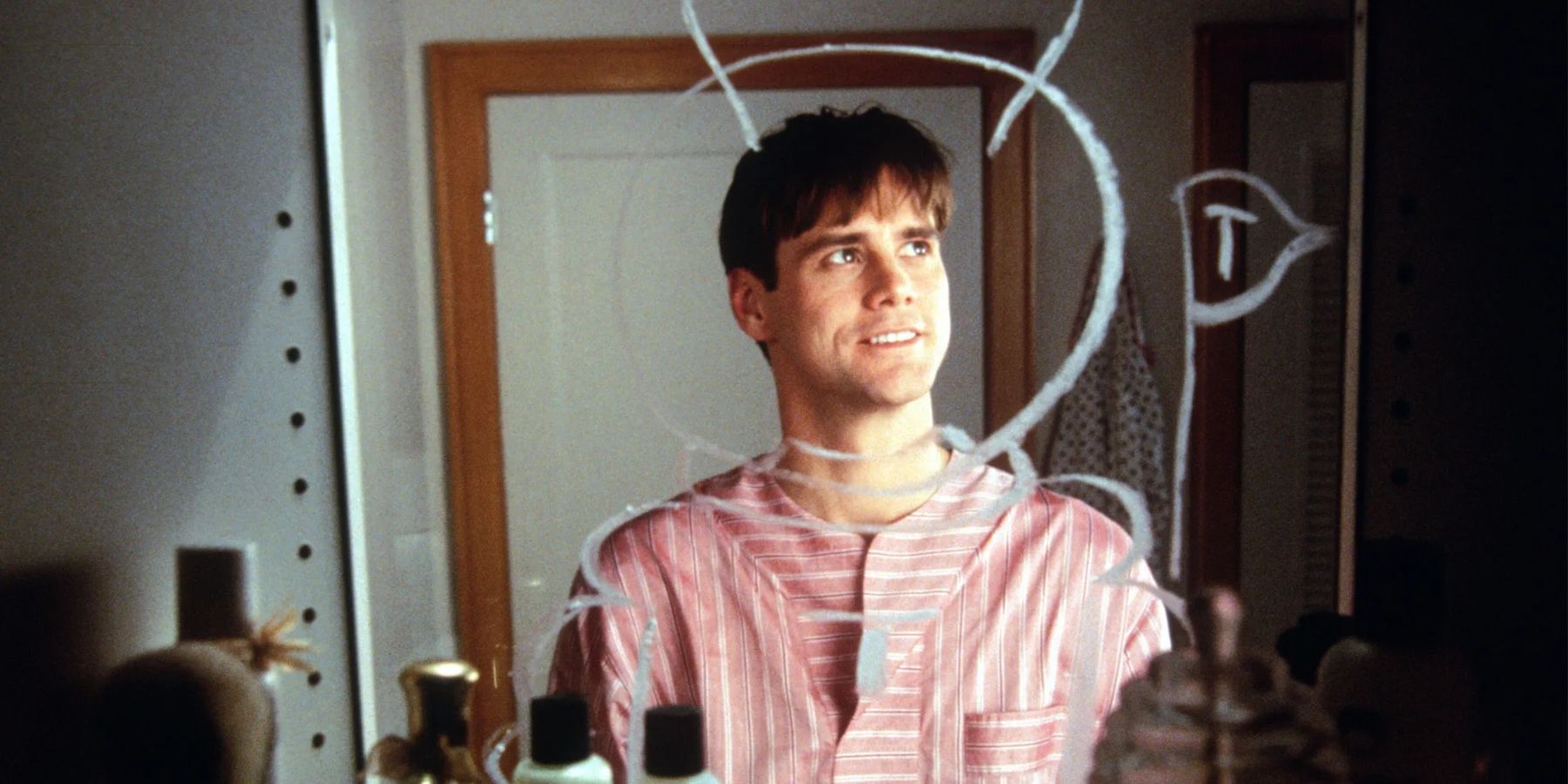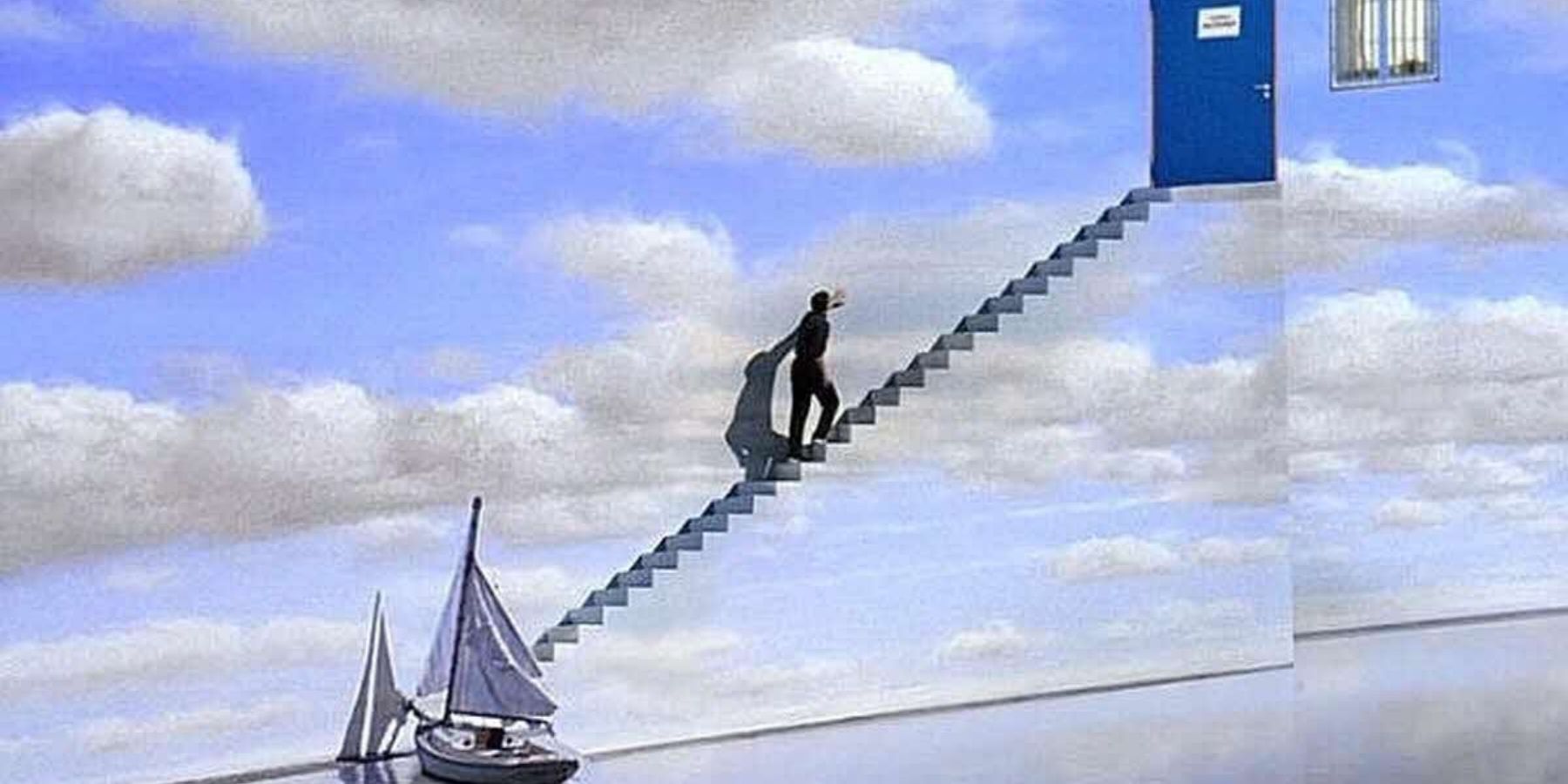
The Mind-Blowing Twist Behind The Truman Show Ending

Discover the timeless brilliance of The Truman Show as we unravel its thought-provoking conclusion Delve into the captivating story and explore the powerful ending that still resonates today
The Truman Show, released in 1998, can be seen as a precursor to shows like Black Mirror, exploring society's obsession with entertainment. Touching on themes of existentialism, invasion of privacy, media manipulation, philosophy, and religion, the film can be viewed as a prophecy of the social media era. It raises the question, "How's it going to end?" leaving viewers contemplating their own existence. Written by Andrew Niccol and directed by Peter Weir, The Truman Show stars Jim Carrey in a role that showcases his talent beyond comedy. The film received acclaim and numerous Academy Award nominations, offering a unique blend of drama, comedy, satire, and science fiction that challenges and inspires upon repeated viewings.
What Is The Truman Show About?
Truman Burbank, played by Carrey, resides in Seahaven, a seemingly perfect town. He holds a job at an insurance company, has a loving wife (Laura Linney), and enjoys a generally satisfying life. However, unbeknownst to him, his entire existence is a contrived facade. Truman is the star of a world-renowned reality TV show, where hidden cameras observe his every move within his elaborate hometown. Everyone he encounters, including his family and friends, are actors who play predetermined roles and follow scripts. Christof, the show's creator portrayed by Ed Harris, meticulously orchestrates Truman's surroundings and influences, ranging from his social connections to his consumer choices, and even the weather. Ultimately, Christof's aim is to produce an entertaining and lucrative television spectacle that captivates audiences around the clock.
Gradually, Truman begins to notice peculiar incidents, such as his coworkers repetitively uttering the same phrases, a spontaneous light plummeting from the sky, and blatant product endorsements. These occurrences prompt him to question the authenticity of his life and the true intentions of his loved ones. When Truman finds himself isolated in a rain shower that solely targets him, he becomes resolute in his conviction that his entire town revolves around him. Driven by his desire to escape Seahaven and reunite with Sylvia, the woman he loves, Truman sets his sights on Fiji.
During his youth, Truman fell in love with Sylvia, an actress disguised as an extra named Lauren. Against the wishes of the showrunners, they share a brief yet significant connection in a flashback. Alone for a moment, Sylvia confesses that "they" prohibit her from speaking to Truman. They share an intimate kiss before Sylvia is abruptly taken away by a man claiming to be her father. She desperately tries to explain that everything around Truman is fake and urges him to escape and find her. Sylvia is dismissed from the show but dedicates herself to activism, aiming to end the production and liberate Truman.
As the film progresses, Truman grows increasingly suspicious and paranoid. The actors playing his loved ones attempt to convince him that his concerns are baseless. He begins to doubt his wife's intentions and realizes she is involved in the conspiracy. Confronting her with a knife, the actress breaks character and calls for help, leading to her removal from the show. In an effort to calm Truman's suspicions, the show's creator reintroduces the character of Truman's long-lost father. Though Truman appears to return to his routine, he becomes convinced that his entire existence is a lie and starts secretly seeking answers and a means of escape, all the while longing for Sylvia. However, he knows he cannot trust anyone.
How Does The Truman Show End?
As Truman manages to evade the ever-present cameras one fateful night, he mysteriously disappears, prompting a panicked search throughout the entire town. Astonishingly, Christof, the mastermind behind Truman's life, pauses the broadcast for the very first time, joining the endeavor to locate him. In a remarkable gesture to aid the quest, Christof orchestrates a fabricated daylight, amplifying the chances of successful retrieval. Nevertheless, upon discovering Truman's whereabouts, they find him fearlessly confronting his deep-rooted fear of the vast ocean, resolutely sailing away on a boat, determined to attain freedom. Filled with fury, Christof unleashes a menacing tempest, displaying a heartless willingness to potentially eliminate Truman, all in a desperate bid to hinder his escape and preserve the concealed truth.As Truman sails into the tempest, defying the artificial reality he has been force-fed throughout his existence, the entire world stands transfixed, their breath held in anticipation. And then, the storm subsides, relinquishing its hold on Truman's vessel as it approaches the boundary of the constructed world. An expansive wall, masquerading as the limitless expanse of the universe, looms before him, shattering his heart with its undeniable truth – his entire existence is a fabrication. Consumed by despair, Truman relentlessly pounds the barrier, confronting the realization that his world, his life, are nothing but elaborate lies.
In the climactic crescendo, Truman disembarks from his ship, casting his gaze toward the surroundings, and uncovers a staircase leading to an exit door. With a reverence in his touch, he brushes against the unyielding wall, while Christof, silent and observant, bears witness.
Truman, facing a closed door, sees it open as Christof takes a deep breath. Speaking through a sky speaker, Christof reveals himself as the show's creator and discloses the truth to Truman. Questioning the reality of his entire existence, Truman asks for clarification. Christof acknowledges Truman's authenticity, stating that it is the very thing that made him fascinating to watch. Attempting to persuade Truman to remain in the artificial world tailored for him, Christof awaits his decision while the world watches. After a moment of contemplation, Truman turns to the camera, utters his catchphrase, grins, and graciously bows one final time for his audience. He then walks through the door. Viewers worldwide erupt in cheer, celebrating his escape, only to swiftly switch channels in search of new entertainment.
The Truman Show concludes with an ambiguous ending, imbuing the film with a depth that no definitive resolution could achieve. Throughout his life, Truman had been spoon-fed explanations from others, their constant efforts to justify every aspect of his existence. Faced with the physical and metaphorical barrier before him, Truman recognizes that he no longer desires predictable explanations. Instead, he chooses to embrace the uncertainty of the real world. As the film concludes, its satirical undertones become evident as two viewers cheer for Truman, only to immediately seek a new distraction by changing the channel. While Truman breaks free from the illusion that had entrapped him, his real-world audience willingly seeks out a new illusion to captivate their attention.
The Truman Show also explores the theme of authenticity, which is particularly relevant today. Christof claims that Truman's authenticity is what makes the show popular, but Truman counters, saying, "You never had a camera in my head." This line provides a fresh perspective on various events in both the show and the movie itself. Christof's notion of authenticity is rooted in his godlike complex and belief that he understands Truman better than Truman understands himself. He orchestrates the show based on what he assumes Truman is thinking at every moment. However, in reality, while every aspect of Truman's life is carefully scripted and controlled, his emotions and dreams remain entirely his own. While the overall message and ending of the film can be interpreted in multiple ways, it is undeniable that The Truman Show remains a powerful and significant exploration of television culture.













